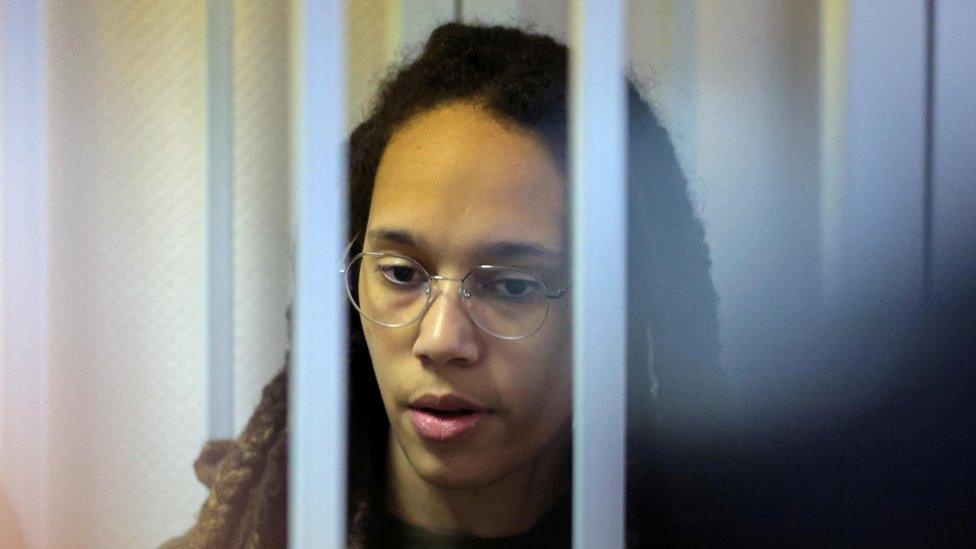Brittney Griner: Jailed US basketball star moved to Russian penal colony
- Published
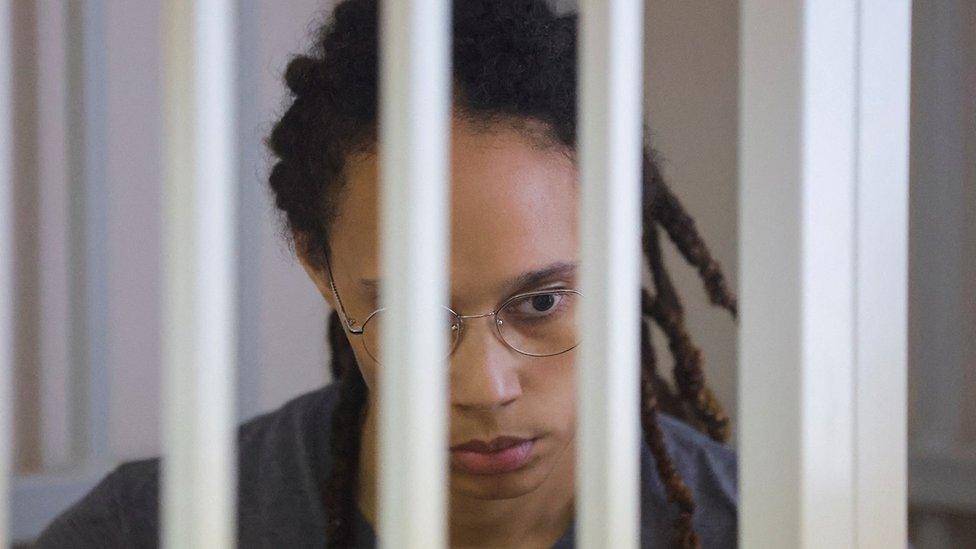
Brittney Griner was sentenced to nine years in a penal colony by a court in Russia in August
Jailed US basketball star Brittney Griner is being moved from a Russian prison to a penal colony.
She was arrested at an airport near Moscow in February when cannabis oil vapes were found in her bags.
The double-Olympic winner was convicted of smuggling and possessing cannabis oil in August and sentenced to nine years in a penal colony.
While the use of cannabis is illegal in Russia, Moscow has been accused of using Griner "as a political pawn".
On Wednesday, the 32-year-old's legal team said the transfer began last week and Griner was on her way to a penal colony, but they added that they had not been told where she currently is or where she is being sent to.
The US embassy is normally informed of where international prisoners are held. Griner's team believe they may not be told for two weeks.
Penal colonies are the descendants of Soviet-era enforced labour camps, otherwise known as gulags.
In them, prisoners are housed in barracks and perform labour. Penal colonies are also a source of income, with some containing factories that produce items such as food or clothing, while some inmates undertake construction work.
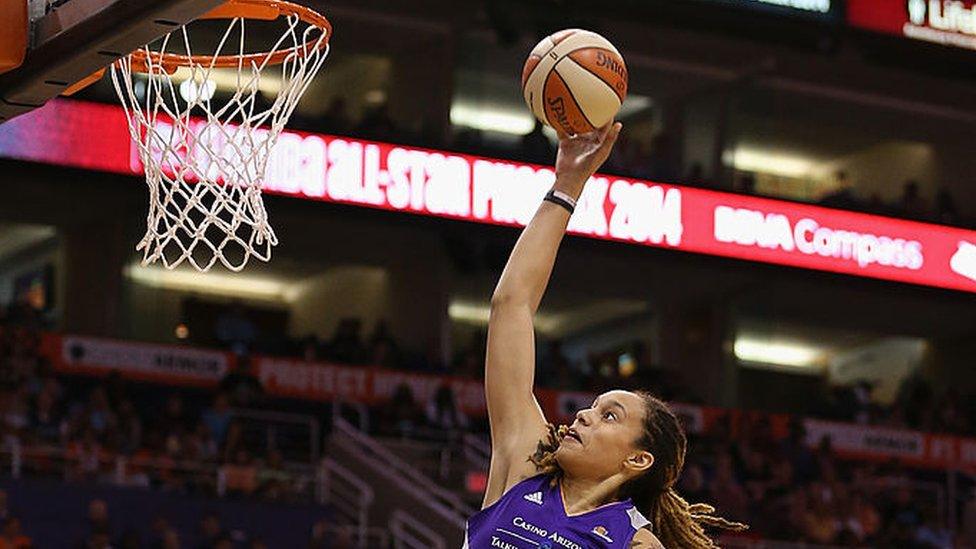
Griner is the first woman in the league to consistently dunk
At the time of her trial, Griner pleaded guilty, but said she had made an "honest mistake" and had not meant to break the law.
Last month, Griner - who is seen by many as the greatest female basketball player of all time - and her legal team appealed against her nine-year sentence, but a court near Moscow upheld it, with the state prosecutor calling it "fair".
The double Olympic winner apologised for her "honest mistake" in the appeal hearing via video link, saying her imprisonment had been "very, very stressful" and "traumatic".
Speaking afterwards, the WNBA star's lawyer, Alexander Boykov, said his team hoped that a prisoner exchange would be possible.
Mr Boykov has also criticised Griner's sentence for being unduly harsh: "No judge, hand on heart, will honestly say that Griner's nine-year sentence is in line with Russian criminal law," he said after her appeal was rejected.
In Russia, possession of less than 6g of cannabis is normally punishable by a fine or 15 days in detention. Griner is thought to have had less than 1g when she entered Russia to play basketball during the US off-season.
Following the rejection of her appeal, Griner's wife, Cherelle Griner, told the CBS Mornings programme that the basketball star was a "hostage" of the Russian government.
She said she did not know if her spouse "has anything left in her tank to continue to wake up every day and be in a place where she has no-one".
Speaking after Griner's transfer to the undisclosed penal colony, White House press secretary Karine Jean-Pierre said that the US was "unwavering" in attempts to free her and other detained Americans.
She added that US President Joe Biden had ordered his administration to swiftly "prevail on her Russian captors to improve her treatment and the conditions she may be forced to endure in a penal colony".
Secretary of State Antony Blinken said the US expected Russian authorities to provide its embassy officials with access to Brittney and other Americans detained in Russia.
In late July, the Biden administration proposed a prisoner swap with Russia to secure Griner's release, as well as that of ex-marine Paul Whelan, who Moscow accuses of spying.
Officials said Russia had yet to respond positively to the suggestion and said diplomacy should not be conducted in public.
Russia's invasion of Ukraine a week after Griner's arrest and the US's backing of Kyiv have further inflamed tensions between the two countries.
Related topics
- Published15 June 2022
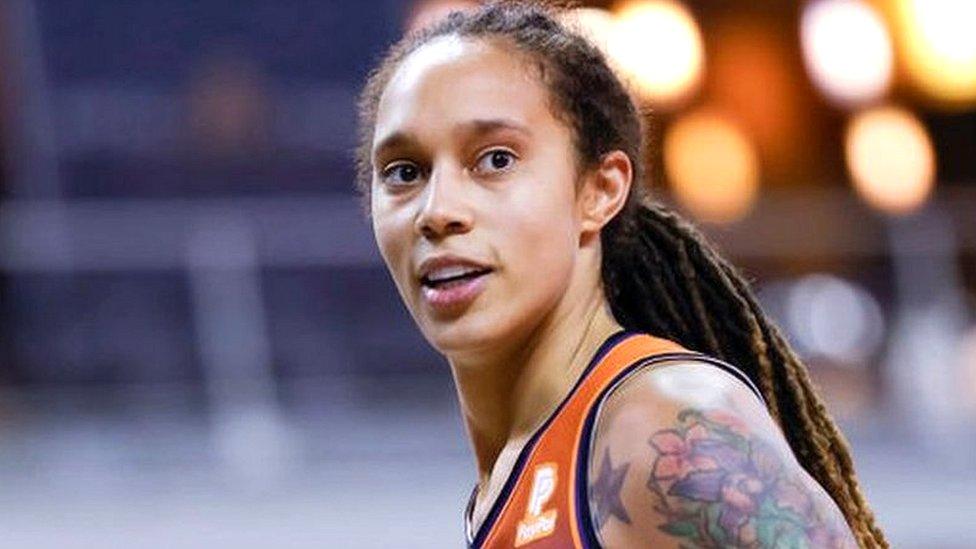
- Published4 August 2022
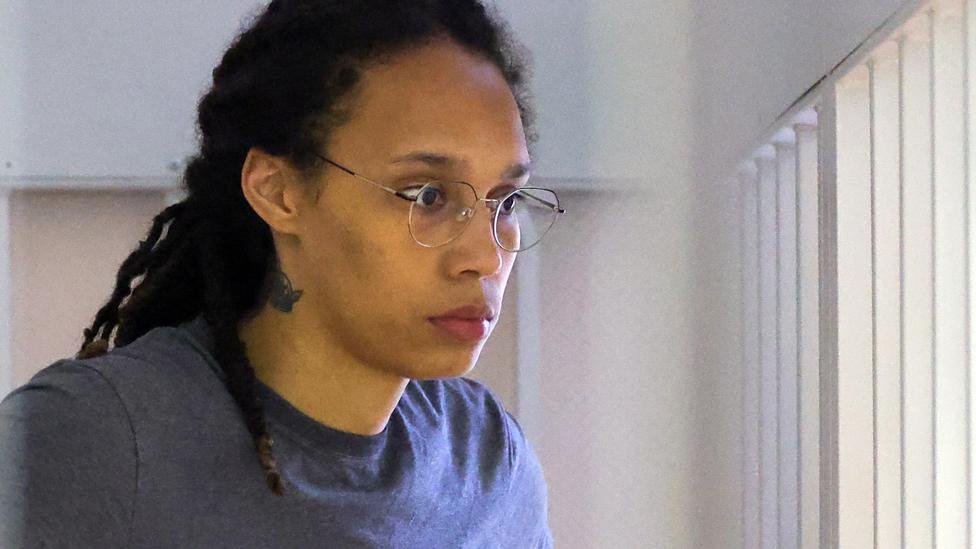
- Published4 August 2022
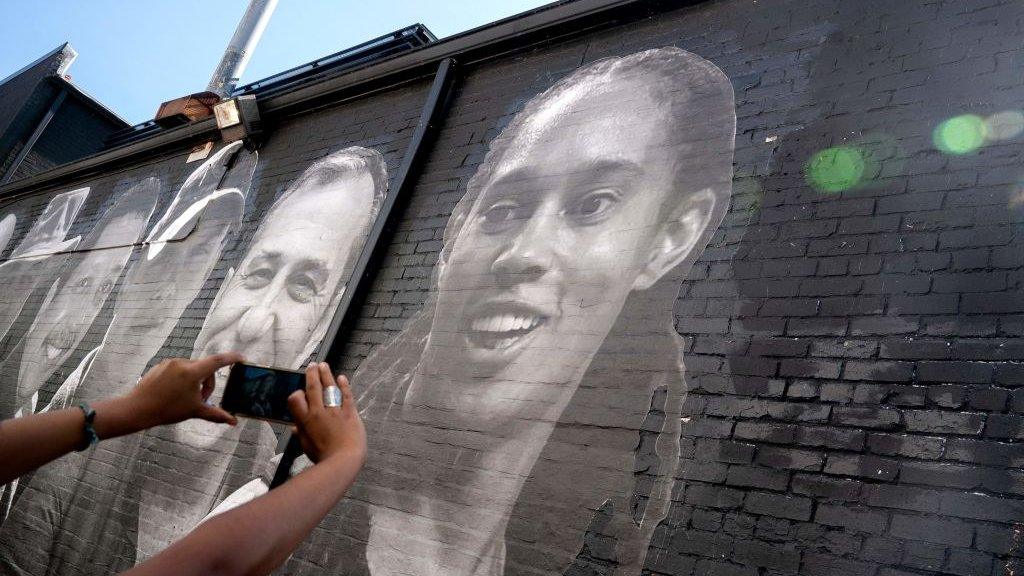
- Published26 October 2022
